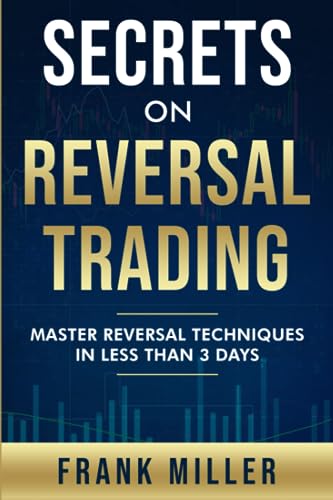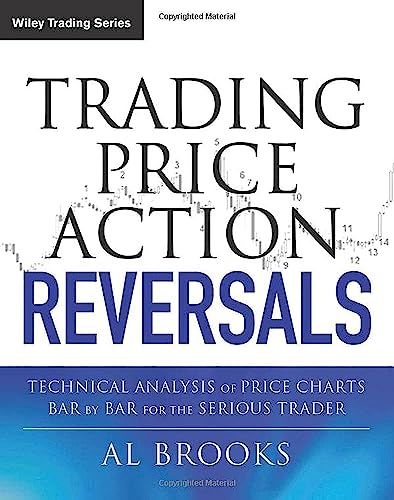- Miller, Frank (Author)
- English (Publication Language)
- 92 Pages - 11/01/2020 (Publication Date) - Independently published (Publisher)
Introduction
Reversal trading is a powerful strategy that can fast track your success in the financial markets. By identifying key market reversals, traders can capitalize on lucrative opportunities and maximize their profits. In this article, we will explore the concept of reversal trading and provide valuable insights on how to implement this strategy effectively.
Understanding Reversal Trading
Reversal trading involves identifying potential trend reversals in the market. It is based on the belief that when a trend reaches its peak or bottom, it is likely to reverse its direction. Traders who can accurately predict these reversals can enter trades at the early stages, allowing them to profit from the subsequent price movements.
The Importance of Timing
Timing is crucial in reversal trading. To achieve success, traders must be able to identify the right moment to enter and exit their trades. This requires a deep understanding of market indicators, chart patterns, and other technical analysis tools. By mastering the art of timing, traders can increase their chances of making profitable trades.
Key Indicators for Reversal Trading
Several indicators can help traders identify potential reversals. Some commonly used indicators include:
1. Moving Averages: By comparing short-term and long-term moving averages, traders can spot potential trend reversals.
2. RSI (Relative Strength Index): This oscillator measures the speed and change of price movements. Overbought or oversold conditions can indicate an upcoming reversal.
3. MACD (Moving Average Convergence Divergence): This indicator combines moving averages to identify potential trend reversals.
4. Candlestick Patterns: Reversal patterns such as doji, hammer, and shooting star can provide valuable insights into market sentiment.
Implementing a Reversal Trading Strategy
To implement a successful reversal trading strategy, traders should follow these steps:
1. Identify potential reversal signals using the key indicators mentioned above.
2. Confirm the reversal signal by analyzing other supporting factors such as volume and market sentiment.
3. Set clear entry and exit points based on your risk tolerance and profit targets.
4. Use proper risk management techniques, such as setting stop-loss orders, to protect your capital.
5. Continuously monitor your trades and adjust your strategy if necessary.
Conclusion
Reversal trading can be a highly profitable strategy if executed correctly. By mastering the art of timing and utilizing key indicators, traders can identify potential trend reversals and capitalize on them. Remember to always conduct thorough analysis and follow a well-defined strategy to increase your chances of success. Start incorporating reversal trading into your trading arsenal and fast track your path to success in the financial markets.
- Miller, Frank (Author)
- English (Publication Language)
- 92 Pages - 11/01/2020 (Publication Date) - Independently published (Publisher)
- Hardcover Book
- Brooks, Al (Author)
- English (Publication Language)
- 576 Pages - 01/24/2012 (Publication Date) - Wiley (Publisher)
- Pecaut, Rayner (Author)
- English (Publication Language)
- 71 Pages - 08/04/2022 (Publication Date) - Independently published (Publisher)
- Baker, Elliot (Author)
- English (Publication Language)
- 74 Pages - 06/15/2023 (Publication Date) - Independently published (Publisher)




